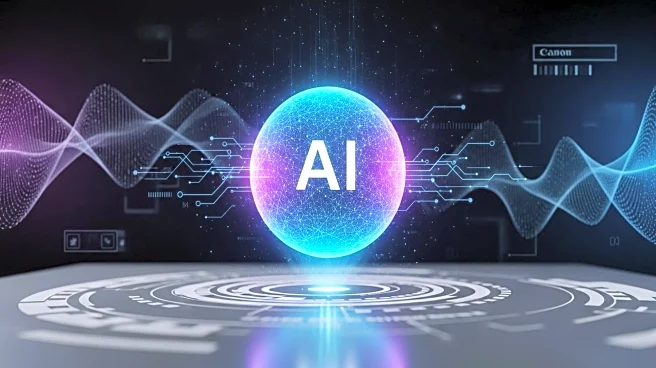What's Happening?
Globant has unveiled version 2.3 of its Enterprise AI platform, incorporating the Agentic Commerce Protocol (ACP) to enable AI agents with transactional capabilities. This update follows OpenAI's announcement of the new protocol, allowing Globant's clients to adopt cutting-edge advancements instantly. The ACP facilitates secure AI-driven transactions through conversational interfaces, leveraging existing payment systems. This integration enhances Globant's platform, which already includes Model Context Protocol and Agent-to-Agent communication, further accelerating AI development for global organizations. The new version will be available by invitation, with a waitlist for interested clients.
Why It's Important?
The integration of transactional capabilities into AI platforms represents a significant advancement in the field of artificial intelligence. By enabling secure transactions through conversational interfaces, Globant's Enterprise AI platform offers businesses a powerful tool for enhancing operations and customer interactions. This development has the potential to transform industries by streamlining processes and reducing costs associated with traditional transaction methods. As AI continues to evolve, the ability to execute transactions securely and efficiently will be crucial for businesses seeking to leverage technology for competitive advantage.
What's Next?
Globant's introduction of transactional AI capabilities may lead to increased adoption of AI-driven solutions across various industries. As businesses explore the potential of AI agents for executing transactions, there may be a shift towards more integrated and automated systems. The availability of the new version by invitation suggests a strategic rollout, allowing Globant to refine the platform based on client feedback. This approach may lead to further enhancements and broader adoption of AI-driven transactional solutions in the future.
Beyond the Headlines
The integration of transactional capabilities into AI platforms raises important ethical and security considerations. As AI agents become more involved in business operations, ensuring the security and privacy of transactions will be paramount. Additionally, the shift towards automated systems may have implications for workforce dynamics, requiring businesses to address potential job displacement and retraining needs. The development of AI-driven transactional solutions also highlights the importance of collaboration between technology providers and businesses to ensure successful implementation.










